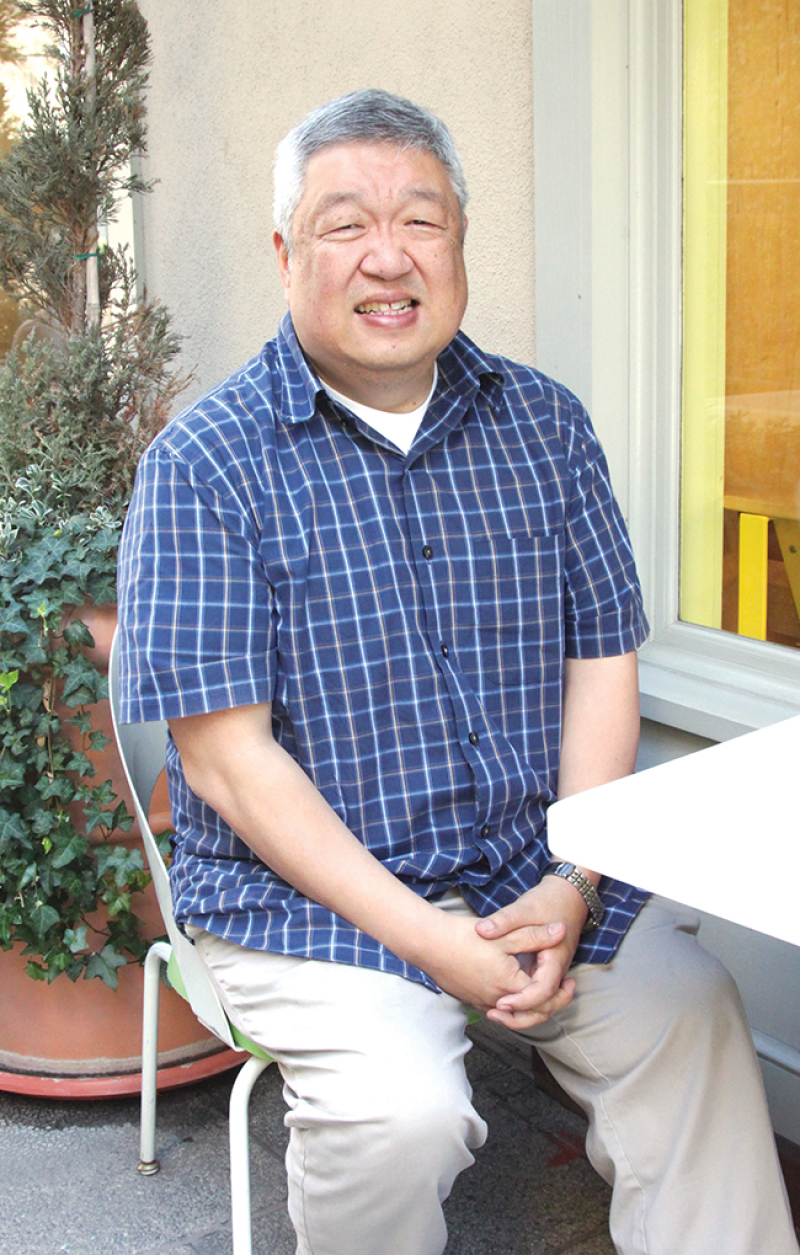
Dr. Benjamin Shin is one who commits himself for the long haul. Shin, who is 52, has pastored at LA Hanmi Church for 15 years and at LA Open Doors church for 7; co-founded and has led a para-church ministry called Crossroads Campus Ministry (CCM) for 30 years; and has taught at Biola University's Talbot School of Theology for 14 years as an adjunct faculty and almost 10 years as a full-time professor.
Today, Shin's primary commitment involves building up pastors in the immigrant church and Asian American ministry. Though Shin no longer serves as a pastor, he mentors several pastors each week, has been the head of the Asian American Doctor of Ministry cohort at Talbot, as well as the head of the Asian American Ministry Conference which has been taking place at Biola University for the past two years. Shin is also currently co-authoring a book about Asian American ministry.
Indeed, it's well-known among the Korean American community that many English ministry pastors or youth pastors leave the immigrant church after two to three years due to the difficulties that arise from cultural and language differences.
Shin is no stranger to those difficulties. Shin grew up with parents who, as he described it, acculturated quickly into American culture and spoke only in English to him. As a family, they attended churches such as Grace Community Church or Lake Avenue Church, where most of the congregants were Caucasian, for the first 25 years of his life. As a result, Shin was faced with numerous obstacles when he was first hired into a Korean immigrant church.
"I pretty much broke every cultural rule there is at some point," Shin said.
He didn't insa to his elders - a formal way of greeting people with a bow and formal language. He wasn't quick to visit his congregants who had newborns. He believed, as he saw in Caucasian churches, that the family needs personal space for about two to three weeks afterwards. It was quite confusing for his Korean congregants who wanted to have their pastor visit them almost immediately after news of the baby's birth, Shin explained.
"It was purely out of ignorance," he said, "I just didn't know."
Yet Shin didn't consider those difficulties as reasons to leave, but lessons to learn from. And today, Shin is often seen being greeted respectfully by first generation pastors at various Korean gatherings.
"[The cultural dynamic] was hard because I didn't understand it," Shin explained, "but when I did understand it, it made a huge difference."
This is what he hopes to share with younger pastors who may be struggling in the immigrant church, Shin said.
"Younger pastors say they want to be multi-cultural, but how can they if they don't want to work with the first generation [Koreans]?" he explained.
When looking past the difficulties that come with cultural, generational, and language differences, Shin said that there is a wealth of benefits that a pastor can obtain by serving in the immigrant church.

Dr. Benjamin Shin is a professor at Biola University's Talbot School of Theology.
"You learn how to be cross-cultural," Shin started, as he began gushing about the benefits of serving in the immigrant church. "You learn the spirituality of the culture, such as learning to pray. You learn how to be humble by learning how to submit, which is a godly virtue. You learn generational ministry, as most immigrant churches have children to grandparents. You learn how to be honorable and respectful, which is a culture embedded in the immigrant church and is hard to find in the Caucasian church."
"The immigrant church stretches a pastor in all aspects," he said.
Shin also believes that there may be a subconscious familiarity that Korean Americans feel about their culture, even without knowing. For example, he said he believes most Korean American pastors who have gone to serve in pastoral roles in multi-ethnic or other ethnic congregations will return to the Korean immigrant church.
"They're going to miss the relationships," Shin said. "The way we relate to one another is different."
Shin hopes that through the various ministries he is engaged in today, that pastors would be able to come to realizations and find comfort as they understand those cultural elements more deeply. This is a particular hope that he has for the book that he is co-authoring, called "Tapestry of Grace: Unraveling the Cultural Complexities of Asian American Christianity.'
"The hope of the book is that younger pastors would be able to get a deeper understanding of "why,'" Shin said.
Shin and Dr. Sheryl Silzer, who is co-authoring the book with him, had been teaching a class together called, "The Asian Church and American Society,' in which Silzer touched upon cultural aspects and Shin touched upon theological aspects. Once people come to a deeper understanding of the culture and what the root of certain behaviors may be, people find comfort and healing, Shin found.
"Every time we explained what might be going on, I would see people lighting up and realizing things," he said. "People even called our class "Therapy 101.'"
Some of the topics they delve into in the book, which is largely based on what they taught in their class, include how the honor and shame culture affects relationships; the Korean concept of han, or a deep grieving or longing; leadership and theology differences; and different church models that Asian American churches have had.
As Shin himself continues to learn more about those elements, he said, "I am still loving the culture, the people, the food, the humor, the spirituality," Shin said. "My love has been growing."
"I'm very hopeful for what's happening, in the large scope of things "¦ We just need to stay the course, stay faithful, and glean what our previous generation did, so that we're not self-reliant and arrogant. And God will show us favor."


















